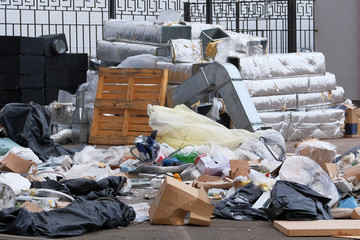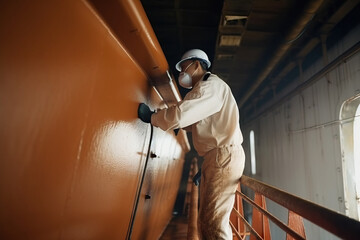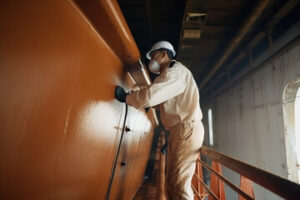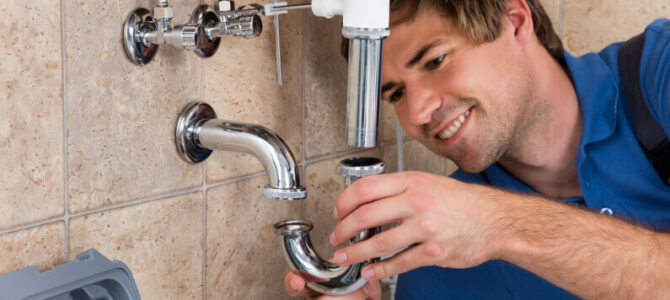Concrete Contractors Orange County use specialized knowledge, skills, and experience to handle various aspects of concrete construction projects. Their work includes site preparation, mixing, pouring, and finishing.
When choosing a concrete contractor, ask for references from previous customers and examples of their work. This will help you decide whether they are the right fit for your project.
Whether concrete contractors are working on a sidewalk, patio, or foundation, site preparation is the first step in the process. This may involve clearing debris, leveling the area, and installing forms or molds to shape the concrete. It may also include laying reinforcement materials like rebar or wire mesh to strengthen the concrete. This helps the structure resist cracking, bending, and other stress.
Next, the contractor mixes concrete according to the project specifications. This requires a high level of skill and precision to ensure the correct ratios of cement, water, and aggregates. Concrete contractors have the equipment to perform these tasks quickly and accurately. They also understand the building codes and regulations for a given region, which helps prevent costly fines or delays.
Preparing concrete for coatings or overlays is another important aspect of the job. The surface should be free of laitance (a weak layer of cement and fines on top of the concrete), dirt, oil, grease, efflorescence, and other contaminants that could interfere with adhesion. The job specifications should clearly state the methods for cleaning, profiling, and spot repairing the concrete surface.
While it’s possible to do some concrete work yourself, professional contractors have the experience and expertise to complete jobs quickly and accurately. They also have access to specialized equipment, which can save time and money by reducing the amount of labor required. Plus, they can help you stay within your budget by optimizing material usage and minimizing waste. Finally, they’re familiar with local zoning laws and building permits, which can save you from legal issues down the road. Ask potential contractors for references from past clients and read online reviews to gauge their reliability and quality of work.
Pouring
When working with concrete, it is critical to have the correct mixture of materials and proper placement techniques. This is where a professional concrete contractor shines. They have extensive industry experience and can anticipate challenges, ensuring the project is on time and within budget.
When interviewing contractors, be sure to ask for examples of previous projects and references. Look for before-and-after photos as well as details about the scope of the project and how each challenge was overcome. This will help you select a concrete contractor that has the right experience level for your unique project.
Experienced concrete contractors understand building permits and can handle all the paperwork required, saving you time and stress. They also know how to minimize construction disruption and keep your property safe while working. They have a wide range of specialized equipment, allowing them to achieve a smooth surface with precision. This is especially important if your finished concrete will be stamped or textured.
During the pouring stage, concrete is poured onto the foundation or structure as specified in the design plan. A professional concrete contractor will use a concrete mixer to ensure the mixture has the right consistency, resulting in a strong and durable concrete. They will also use a float to flatten and level the concrete, eliminating any rough edges or dips. The float also helps eliminate air bubbles, ensuring a consistent and dense final product. A broom can be used for a rough finish, or more polished styles can be applied later. It’s also a good idea to ask potential contractors about their warranty coverage and how they deal with any issues that may arise during the project.
Curing
Concrete must be properly cured in order to gain strength and achieve its intended durability, longevity, and performance. Curing involves a chemical reaction that hydrates cement particles to make them bind together into a solid, hardened mass. The curing process can take several days or even weeks, depending on the conditions. It’s important for contractors to pay close attention to the temperature and moisture levels of their concrete during this time, as improper curing can lead to structural issues down the road.
A commercial concrete contractor understands the nuances of how to best mix and pour concrete mixtures to ensure maximum strength, efficiency, and longevity. They also keep up with the latest developments in admixtures and additives for concrete to create the perfect concrete mixtures for a variety of project requirements. This means they are able to offer the most cost-effective and durable solutions possible for their clients.
The most common curing methods include insulating blankets or heating systems to maintain the concrete’s temperature and prevent freezing. However, these methods can be costly and time-consuming. Another popular option is concrete curing compounds, which are liquid chemical formulations that are sprayed on the surface of the concrete slab to form a protective membrane and slow down the dehydration process.
Unfortunately, these curing methods still require manual monitoring, making them inefficient on projects with tight schedules. Additionally, they can be difficult to use in harsh weather conditions like cold, damp winters or sudden heat waves. Luckily, SmartRock offers a wireless sensor that constantly monitors the effects of ambient temperatures and environmental factors on your in-situ concrete. Real-time data lets contractors know when the concrete has achieved its required strength and allows them to move forward with construction operations sooner.
Finishing
Concrete contractors are experts at bringing your construction vision to life. They meticulously plan and design each project to assess its scope, requirements, and timeline. They also understand the intricacies of different concrete types and how to best use them. This allows them to provide clients with quality, durable results.
One of the most important skills to have as a concrete contractor is patience. This allows them to complete their work without rushing or cutting corners, which could lead to costly mistakes. It also helps them keep calm during stressful situations on the job site.
Pouring concrete is a complex process that requires precision and attention to detail. Concrete contractors carefully plan each stage of the pour to ensure it is executed correctly. They take into account factors like weather conditions, temperature, and humidity to maximize curing and strength. They also monitor formwork and shoring to prevent slumping or shifting during the pour.
Once the concrete has poured, it needs to be smoothed and finished. This is done with a steel trowel. It is important to note that the finishing process should never be started when bleed water is still on the surface of the concrete. Doing so can cause a rise in the water cement ratio, which leads to scaling and dusting.
Another common finishing technique is adding decorative details to the concrete. This can be done by coloring the concrete, stamping it, or mixing it with other materials. Decorative finishes add character and style to the concrete, which can enhance the aesthetic of any home or commercial building.
Inspection
Concrete inspections are a key part of building projects. They help keep a project on schedule, ensure compliance with codes and specifications, and protect the investment of both construction teams and owners. However, as with any complex project there can be a lot of moving parts. That’s why a project special inspector plays such an important role on every construction site. Special inspectors are qualified to conduct inspections based on code and job specs for special tasks such as concrete construction, forming, placement and post-placement operations.
A concrete contractor’s inspection process begins with the site itself, assessing for soil compaction and proper drainage. Then the team moves on to the formwork, ensuring that it’s correctly installed and stable for the concrete pour. Then the inspector reviews the reinforcement, checking that it’s properly positioned and spaced in accordance with design plans. Finally, the inspector checks the slab surface, looking for cracking and other damage that could compromise the structural integrity of the finished concrete structure.
In-situ testing is also a critical component of the inspection process, verifying that the mix design was used as intended and ensuring that the curing temperatures are maintained to ensure the proper strength development for the concrete. This is particularly important with concrete that will be exposed to extreme climate conditions, such as freezing and thawing cycles. Non-destructive testing methods like X-ray, radar, and infrared thermography can evaluate the internal condition of concrete, without the need for invasive core samples or drilling. These tests can be done in real-time, allowing for immediate inspection feedback and quick remediation to avoid construction delays. Intelligent inspection software also helps with efficient project workflow, data management and fast reporting. This allows for rapid communication of issues, ensuring no matter how complex the issue, a prompt solution can be found to prevent construction delays.






